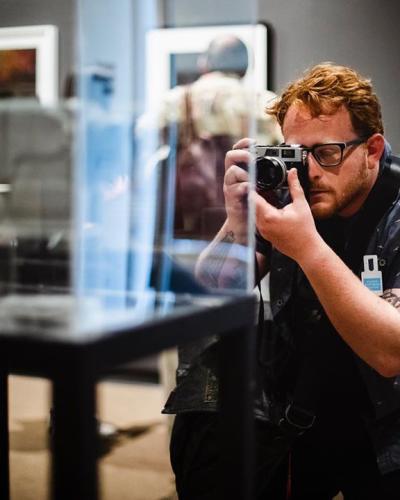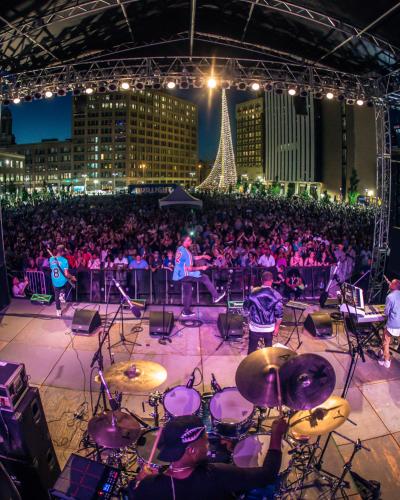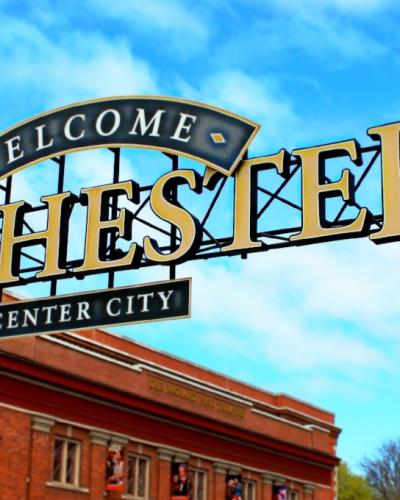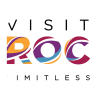As April approaches, excitement builds for a celestial spectacle set to captivate the skies over Rochester, NY—the upcoming solar eclipse. Total solar eclipses are rare events when viewed from a single location, like Rochester. This rarity adds a sense of urgency and thrill, as residents and visitors alike eagerly prepare to witness this once-in-a-lifetime event.
We sat down with James Bader, the Planetarium Director at the Rochester Museum and Science Center (RMSC), to get the scoop on the RMSC and the upcoming Total Solar Eclipse that puts Rochester, NY along the Path of Totality on April 8, 2024.
With the 2024 eclipse fast approaching, what initiatives or programs are you leading to engage the community and make the event memorable for visitors?
In my role, I'll be supporting Dan Schneiderman, the organizer of the ROC the Eclipse event, who has received international recognition for his outstanding work in mobilizing the community. We're renovating the Planetarium to introduce a new 40–50-minute eclipse show, along with a shorter version for the ROC the Eclipse event. The show will give you all the information you need to know to see the eclipse, and it’s done in the most immersive facility we have in Rochester.
Explain the significance of the 2024 eclipse for the Rochester region and why it's considered a once in a lifetime opportunity.
On average, eclipses in Rochester occur once every 120 years, but we had an annular eclipse in the early '90s. An annular eclipse is also known as a “ring of fire,” and involves the moon moving in front of the sun, requiring solar eclipse glasses for safe viewing. The 2024 event is literally coming to Rochester, community members can witness it by simply stepping outside their doors! We’ve made accommodations for visitors from near and far to experience it as well—offering a shared experience across the greater Rochester area.
Rochester rarely sees eclipses, with the next partial eclipse anticipated in 2044. The significance lies in the accessibility of this unique occurrence.
Which educational aspects of a Total Solar Eclipse do you find the most fascinating and how are you hoping to kind of incorporate those into the festival and to the Center's programming overall?
Eclipses offer so many experiences, it’s hard to pin down just one. It’s a great way to get people interested in astronomy. Beyond the expected visual spectacle, the eclipse creates an unexpected change in nature – a temperature drop, the chirping of birds. While we understand what’s going on, animals typically don’t. This adds a unique aspect to the event, allowing observers to witness not only the beauty of the sun but also nature's reaction.
In my role, ensuring accessibility to diverse audiences for science education and eclipse outreach is a top priority. We integrate eclipse information into nearly every show, including open-caption presentations for those who prefer reading over listening. Collaborating with the Genesee Transportation Council and the city, we work to facilitate transportation to museums for eclipse viewing, particularly for those without easy mobility options. Our commitment is to make this experience genuinely accessible to everyone, fostering a comfortable environment for everyone.
How does the upcoming ROC the Eclipse Festival align with RMSC's mission and what unique experiences can attendees expect during the event in addition to the planetarium show?
An event like the eclipse inspires people, and with the festival, we want to cultivate that interest; encouraging minds to become more engaged, interested, and aware of the world around them. In our Planetarium shows, we emphasize that science is about paying attention, asking questions like "What is it?" and "Why is it?"
To enhance the eclipse experience, we’re going to offer unique viewing methods, including colanders and even Ritz crackers for sun projection. Solar telescopes and giant glasses will be available, along with special speakers such as representatives from L3Harris and New York City's Astronomy on Tap. Notably, we're featuring Dr. Phil Plait and Cate Larsen, also known as the Groovy Geologist on TikTok. The event will be coupled with our museum's quarterly After Dark series with a Galactic Get-Down – a silent disco set in the planetarium.
In closing, I’d like to say this is going to be an experience no matter what. You don't need any special tools. There's no gatekeeping in terms of money, as long as you can go outside and look up at the sky, and even if you can't look up, it's going to hit one of your senses. It will reach all of us.
For more information about the RMSC and the upcoming ROC The Eclipse Festival, click here.





